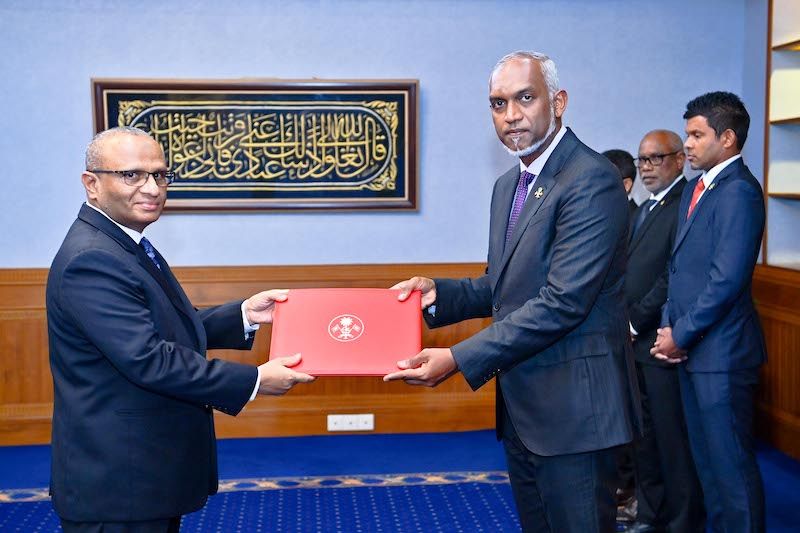Justice resigns as opposition warns of "deliberate dismantling" of democracy
A digest of yesterday's top story.

05 Mar 2025, 09:00
Good morning on the fifth day of Ramadan. Today we’re covering the fallout from Supreme Justice Suood’s resignation. In other news, Majlis committee chairs were told to seek presidential approval before summoning top government officials, STELCO provided clarification about sending out two bills in February and the registrar of companies resigned after 11 years.
Justice Husnu Suood resigned from the Supreme Court in protest against alleged influence to derail a constitutional challenge to anti-defection rules that empowered parties to unseat lawmakers.
In the resignation letter shared with the media on Tuesday morning, Suood accused President Dr Mohamed Muizzu’s administration of blocking the pending judgment on the new constitutional floor-crossing prohibition by suspending three justices, passing a bill to downsize the Supreme Court, and intimidating all seven justices.
The alleged influence to rule in the state’s favour came from President Muizzu, Attorney General Ahmed Usham, Judicial Service Commission Chair Hussain Riza and Anti-Corruption Commission President Adam Shamil, Suood alleged, citing article 141(c) of the constitution, which states: “No officials performing public functions, or any other persons, shall interfere with and influence the functions of the courts.”
The “unconstitutional” efforts began after the court rejected the state’s objection claiming a lack of jurisdiction to hear challenges to constitutional amendments, he noted.
Last week, shortly after parliament approved legal changes to reduce the Supreme Court bench from seven to five justices, the JSC – a 10-member oversight body tasked with investigating complaints against judges – suspended Justices Suood, Azmiralda Zahir and Mahaz Ali Zahir.
The grounds for the move was a notification from the anti-corruption watchdog of a criminal investigation against the justices. The suspension came 10 minutes before the Supreme Court was due to resume hearings in the constitutional case, effectively forestalling a ruling as a minimum of five justices must preside over constitutional cases.
Despite his resignation in the morning, the JSC reportedly proceeded with investigating four complaints against Suood at the meeting on Tuesday afternoon, claiming not to have received the resignation letter since it had been sent to President Muizzu. Suood sent a letter addressed to the JSC chair later in the day.
According to Adhadhu, the JSC took statements from two criminal court judges over alleged influence from the Supreme Court to release Justice Azmiralda's husband from police custody. Last month, Dr Ismail Latheef, an anaesthesiologist at IGMH, denied alleged influence from Justices Azmirelda and Mahaz to secure his release following an arrest in December during a raid of a spa suspected of operating as a brothel.
Echoing widespread condemnation of the suspensions and bench reduction bill last week, the main opposition Maldivian Democratic Party held up Suood’s resignation letter as “clear proof of the government's systematic interference in the judiciary,” calling it “yet another step in the deliberate dismantling of the country's democratic institutions.”
Both the JSC and ACC “under direct executive control have launched politically motivated investigations against Supreme Court justices in an effort to influence their final decision,” the MDP said.
“We urge the Maldivian people to stand up in defense of democracy. We call on all citizens to remain vigilant and actively resist the unconstitutional and illegal actions being carried out by the ruling party in its attempt to consolidate unchecked power.”
Discussion
No comments yet. Be the first to share your thoughts!
No comments yet. Be the first to join the conversation!
Join the Conversation
Sign in to share your thoughts under an alias and take part in the discussion. Independent journalism thrives on open, respectful debate — your voice matters.




